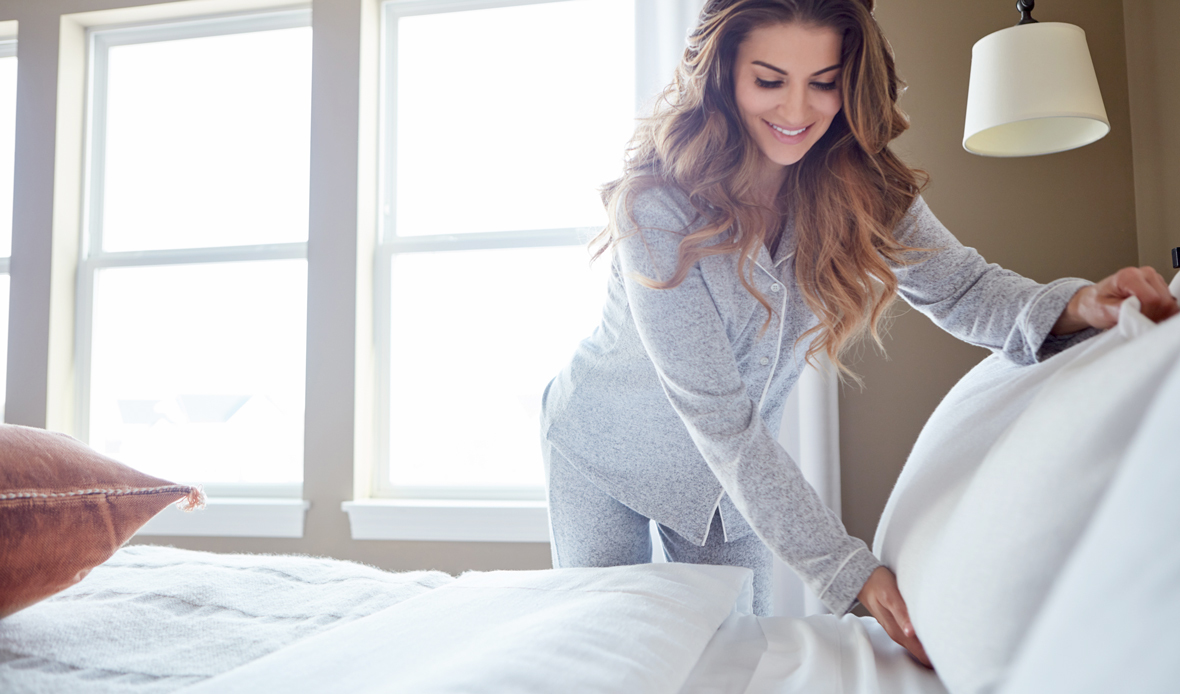Nothing feels better than waking up refreshed and renewed. And it’s no wonder: there’s a lot of rest and repair going on while your mind and body downshift into sleep.
But how do you sleep well when worries, pain, or who-knows-what keep you from getting the seven to nine hours you need? Sleep experts have found that the choices you make all day can set you up for better sleep at night. Here are some tips on how to adjust your daily habits for better sleep:
- Start with a dose of daylight. Try getting 30 minutes to an hour of morning sunlight if possible. Using bright lights during the day, indoors, can also help your body’s regulating “circadian” rhythms.
- Get moving. Try moving our body for at least two and a half hours each week—that’s about 30 minutes five days per week—to sleep better and feel more alert. Even brisk walks will do the trick.
- Clear the clutter. A neat and tidy sleeping space is linked to better sleep habits. Cluttered bedrooms may even contribute to worry or anxiety.
- Make sleep space sacred. That means no working in bed. It can also help to keep the lights low, add a fan for white noise, and maintain a room temperature of 67 degrees or cooler.
- Lighten up on later meals. Heavy meals and spicy foods too close to bedtime can interfere with sleep. Cut back on beverages, too, to avoid nighttime bathroom trips.
- Forget the nightcap.
Alcohol may relax you at first, but it can also cause you to feel more awake when the relaxing effects wear off.
- Cut your screen light.
Evening screen time is the most harmful because the “blue light” from electronic devices tricks your brain into staying alert.
- Design your bedtime routine.
Whatever helps you relax, preps your body for sleep. Try a hot bath; the drop in your body temperature afterward is a proven sleep signal.
- Write down your worries. If your worries keep you up at night, writing them down—and what you plan to do about them—may help allow your mind to let it all go.
- Set a go-to-sleep alarm. It’ll help you disconnect from the busyness of the day. And no snoozing.
Bonus: Let the dog stay. Research says a pet in the room doesn't disturb human sleep, as long as they stay off the bed.
A MOBE Guide can help you get your ZZZZ’s.
There’s a fix for most sleep problems, and our MOBE Guides have helped hundreds of people find lasting solutions.
If you’d like to learn more ways to improve your sleep—and your overall well-being—a MOBE Guide can help. Get started today.
